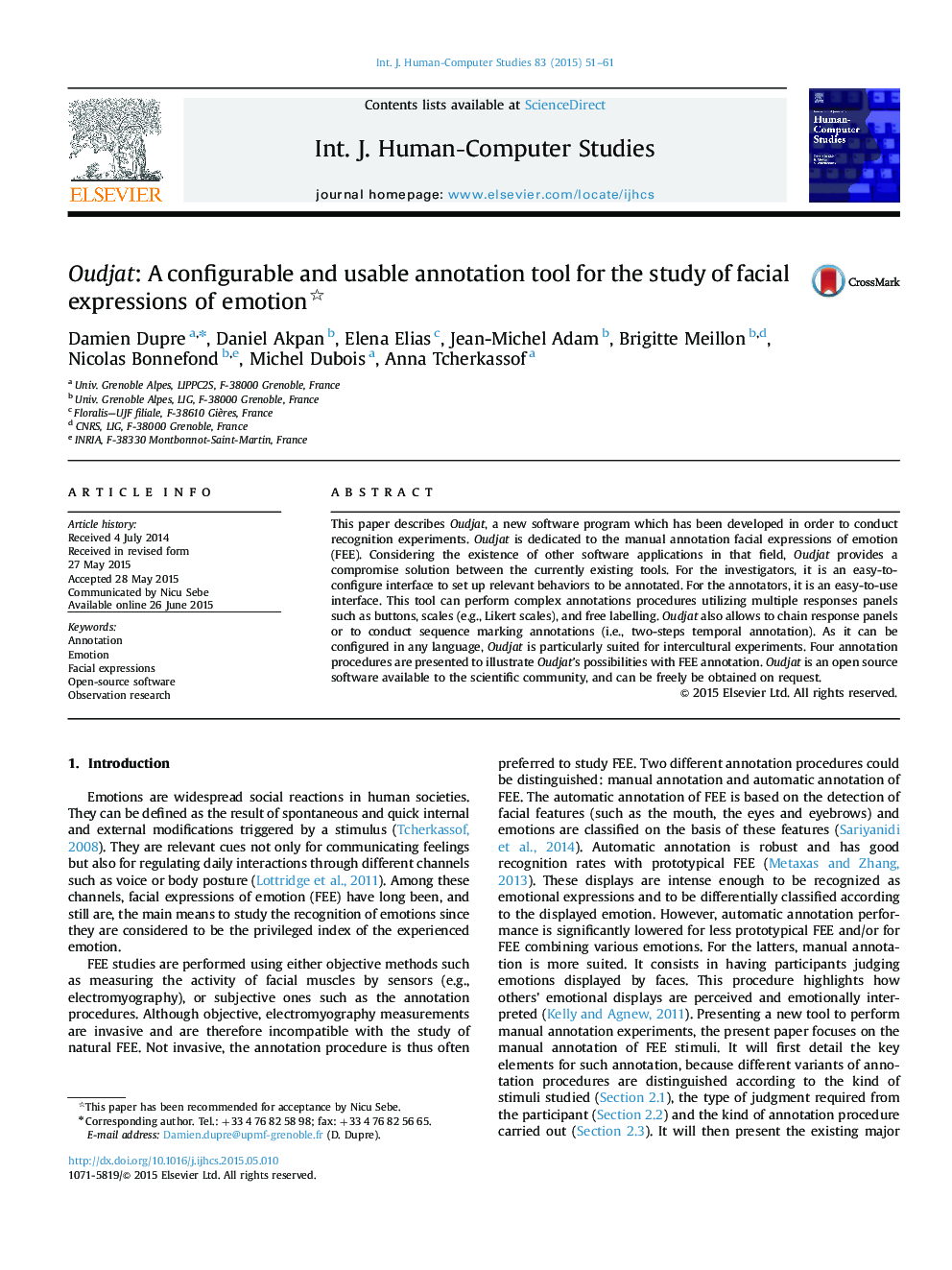| کد مقاله | کد نشریه | سال انتشار | مقاله انگلیسی | نسخه تمام متن |
|---|---|---|---|---|
| 401121 | 1438970 | 2015 | 11 صفحه PDF | دانلود رایگان |
• We review the different annotation procedures for emotional stimuli.
• We review the available tools for emotional annotation and present their advantages and weaknesses.
• We present Oudjat a new tool for annotation experiments which is both configurable by investigators and easy to use by annotators.
• Four case studies are presented to highlight investigators possibilities with Oudjat.
This paper describes Oudjat, a new software program which has been developed in order to conduct recognition experiments. Oudjat is dedicated to the manual annotation facial expressions of emotion (FEE). Considering the existence of other software applications in that field, Oudjat provides a compromise solution between the currently existing tools. For the investigators, it is an easy-to-configure interface to set up relevant behaviors to be annotated. For the annotators, it is an easy-to-use interface. This tool can perform complex annotations procedures utilizing multiple responses panels such as buttons, scales (e.g., Likert scales), and free labelling. Oudjat also allows to chain response panels or to conduct sequence marking annotations (i.e., two-steps temporal annotation). As it can be configured in any language, Oudjat is particularly suited for intercultural experiments. Four annotation procedures are presented to illustrate Oudjat’s possibilities with FEE annotation. Oudjat is an open source software available to the scientific community, and can be freely be obtained on request.
Journal: International Journal of Human-Computer Studies - Volume 83, November 2015, Pages 51–61
